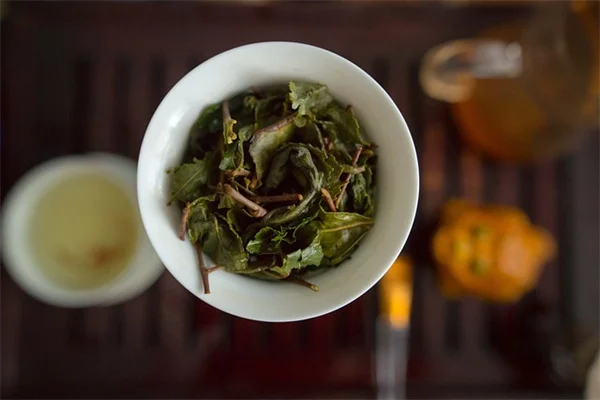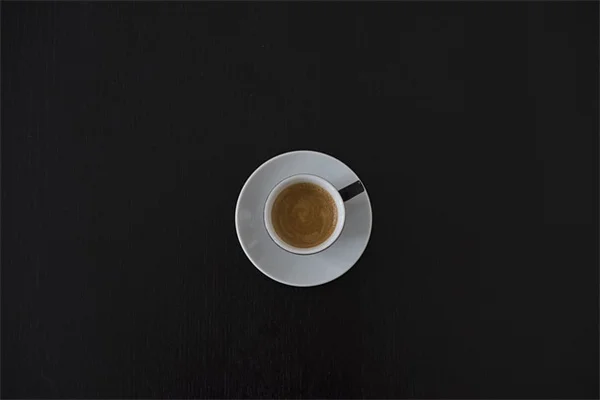Are low protein diets really better for weight loss and longevity? The answer is clear: no. Despite what viral TikTok trends claim, reducing your protein intake can actually work against your health goals. Here's why: protein keeps you full, helps maintain muscle mass, and supports your metabolism - all crucial for sustainable weight loss. I've seen too many clients fall for these protein myths only to feel constantly hungry and lose muscle instead of fat. The truth is, most adults need at least 0.8 grams of protein per kilogram of body weight daily. And get this - combining plant and animal proteins gives you the best nutritional bang for your buck. Let me break down why these low-protein claims don't hold up and how you can optimize your protein intake for real results.
E.g. :Daily Aspirin Risks for Seniors: Why 18.5 Million Americans Should Reconsider
- 1、Is a Low Protein Diet the Secret to Weight Loss?
- 2、The Truth About Protein and Your Health
- 3、Protein Types: What Really Works
- 4、Making Protein Work for You
- 5、Final Thoughts on Protein and Weight Loss
- 6、The Hidden Dangers of Protein Deficiency
- 7、Protein Myths That Need to Die
- 8、Protein Timing: When Matters Too
- 9、Protein Hacks for Real Life
- 10、Protein and Your Mental Health
- 11、FAQs
Is a Low Protein Diet the Secret to Weight Loss?
Let me tell you something funny - I once saw a TikTok claiming you could lose weight by eating nothing but marshmallows because they're "low protein." That's when I knew we had a protein misinformation problem!
The Protein Confusion Going Viral
Social media is exploding with claims that low protein diets are the magic solution for weight loss and longevity. But here's what actual experts say: adequate protein keeps you full, builds muscle, and actually helps weight loss.
One viral video claimed human breast milk contains 6% protein (it's actually 1%) and argued that's all we need. But guess what? Babies double in size in six months - do you really want your nutrition plan based on an infant's growth rate? I didn't think so!
Why Protein Matters for Your Weight Loss
Here's the deal: protein is like your body's building blocks. When you eat enough:
- You feel fuller longer (goodbye snack attacks!)
- You maintain muscle while losing fat
- Your body burns more calories digesting it
Now, could you lose weight on low protein? Technically yes - if you replace protein foods with veggies. But you'd likely lose muscle too, which slows your metabolism. That's why most people regain the weight later.
The Truth About Protein and Your Health
 Photos provided by pixabay
Photos provided by pixabay
Longevity: It's Not About Protein Amounts
Some studies show eating less red meat may help longevity. But here's the kicker - it's not about eating less protein overall! The benefits come from:
- Better heart health from less saturated fat
- More nutrients from plant foods
- Lower inflammation
Your body absolutely needs protein - at least 0.8g per kg of body weight daily. Go below that, and you risk:
| Risk | Why It Matters |
|---|---|
| Muscle loss | Weakness, slower metabolism |
| Nutrient deficiencies | Low energy, poor immunity |
| Weaker immune system | More colds and illnesses |
Special Cases Where Lower Protein Helps
For some people with kidney disease or certain cancers, doctors may recommend lower protein. But this is medical advice - not something to try because some influencer said so!
Ever wonder why protein recommendations vary so much? Because your needs depend on:
- Your age (older adults need more)
- Your activity level (athletes need more)
- Your health conditions
Protein Types: What Really Works
Animal Proteins - The Complete Package
Foods like eggs, chicken, fish and dairy contain all essential amino acids. They're also packed with nutrients like:
- Vitamin B12 (energy)
- Iron (oxygen transport)
- Zinc (immunity)
But here's my pro tip: balance them with plant proteins. Too much red meat isn't great, but eliminating animal proteins completely makes it harder to get certain nutrients.
 Photos provided by pixabay
Photos provided by pixabay
Longevity: It's Not About Protein Amounts
Beans, lentils, tofu and nuts are protein powerhouses! While some plant proteins are "incomplete," combining them (like rice and beans) gives you all essential amino acids.
The best part? Plant proteins come with fiber and antioxidants that animal proteins don't have. They're like getting bonus health benefits with your protein!
Processed Proteins - Convenient but Tricky
Protein bars and shakes can be helpful, but many are ultra-processed junk in disguise. My rule? If it has more sugar than protein, it's basically a candy bar with a health halo!
When choosing supplements, look for:
- Minimal ingredients
- No added sugars
- At least 15g protein per serving
Making Protein Work for You
Simple Ways to Get Enough Protein
Here's what I recommend to clients:
- Include protein at every meal
- Choose protein snacks like Greek yogurt or nuts
- Mix plant and animal sources
For example, breakfast could be eggs with whole grain toast (animal + plant protein), while lunch might be a lentil salad with feta cheese.
 Photos provided by pixabay
Photos provided by pixabay
Longevity: It's Not About Protein Amounts
Wondering how much protein you specifically need? Let's break it down:
If you weigh 150 lbs (68 kg):
- Basic needs: 55g protein/day
- If active: 68-136g protein/day
The easiest way to track? Just divide your plate:
- 1/4 protein
- 1/4 whole grains
- 1/2 vegetables
Final Thoughts on Protein and Weight Loss
Why Extreme Diets Don't Work
Any diet that eliminates entire food groups (like protein) sets you up for:
- Nutrient deficiencies
- Muscle loss
- Eventually regaining weight
The healthiest approach? Balanced meals with adequate protein from varied sources. Your body will thank you!
Protein: Your Weight Loss Ally
Remember, protein isn't the enemy - it's your secret weapon for:
- Controlling hunger
- Preserving muscle
- Boosting metabolism
So next time someone tells you to cut protein for weight loss, you'll know better. Now go enjoy that chicken salad - your muscles will thank you!
The Hidden Dangers of Protein Deficiency
When Your Body Starts Breaking Down
You know that "hangry" feeling when you skip meals? Multiply that by ten - that's what happens when your body runs low on protein. Your system literally starts cannibalizing itself, breaking down muscle tissue for amino acids.
I had a client who switched to a fruit-heavy diet and complained about constant fatigue. Turns out she was only getting 30g protein daily - half what she needed! After increasing protein, her energy levels skyrocketed. Moral of the story? Don't let your muscles become lunch!
The Sneaky Signs You're Not Getting Enough
Protein deficiency doesn't always show up as dramatic weight loss. Watch for these subtle red flags:
- Brittle nails that peel like old wallpaper
- Hair thinning faster than your patience in traffic
- Cravings so intense you'd wrestle a bear for peanut butter
Ever notice how some vegetarians suddenly develop a cheese addiction? That's their body screaming for complete proteins! The good news? Adding just 1-2 protein-rich foods daily can reverse these symptoms fast.
Protein Myths That Need to Die
"All Protein is Created Equal"
Let's play a game - would you rather get your protein from:
- A grass-fed steak with omega-3s
- A processed chicken nugget with 20 ingredients
Exactly! Protein quality matters just as much as quantity. The steak gives you iron and B vitamins, while the nugget comes with preservatives and fillers. This explains why two people eating the same protein grams can have wildly different health outcomes.
"You Can't Get Enough Protein from Plants"
Tell that to the elephants - these massive creatures build their bodies entirely on plants! While plant proteins require more planning, combinations like:
- Hummus with whole wheat pita
- Brown rice with black beans
- Peanut butter on whole grain toast
provide complete amino acid profiles. The key? Variety. Rotate your plant proteins like you rotate your Netflix shows!
Protein Timing: When Matters Too
The Anabolic Window - Fact or Fiction?
Gym bros swear you must chug a protein shake within 30 minutes of lifting. But research shows your muscles stay "protein hungry" for up to 24 hours after exercise. That said, spreading your intake throughout the day does help.
Here's what works better than obsessing over timing:
| Time | Smart Protein Move |
|---|---|
| Breakfast | 20g protein to break overnight fast |
| Lunch | 30g to power through afternoon |
| Dinner | 25g for overnight recovery |
Nighttime Protein - Your Muscles' Midnight Snack
Ever wake up starving? That's your muscles crying for amino acids! Casein protein (found in cottage cheese) digests slowly, feeding your muscles for hours. Try this before bed:
- 1 cup cottage cheese with berries
- Greek yogurt with chia seeds
- Glass of milk with a handful of nuts
Your muscles will repair themselves while you dream of being chased by giant chickens (wait, just me?).
Protein Hacks for Real Life
Emergency Protein Sources
Stuck at an airport or gas station? Here's how to find decent protein:
- Hard boiled eggs (often near checkout)
- Beef jerky (look for low-sodium versions)
- String cheese (anywhere with refrigerated snacks)
I once survived a cross-country flight on airport Starbucks - their protein boxes saved me from becoming "hangry passenger" meme material!
Protein on a Budget
Think eating enough protein costs too much? Let's compare:
| Protein Source | Cost per 20g Protein |
|---|---|
| Chicken thighs | $0.75 |
| Canned tuna | $1.00 |
| Lentils | $0.30 |
| Protein powder | $1.50 |
See? You don't need filet mignon at every meal. Eggs, canned fish, and legumes give you serious bang for your buck!
Protein and Your Mental Health
How Protein Affects Your Mood
Ever notice how carb-heavy meals make you sleepy, while protein meals keep you sharp? That's because protein provides amino acids your brain uses to make:
- Serotonin (the "happy" chemical)
- Dopamine (motivation molecule)
- Norepinephrine (focus booster)
A client once told me switching to protein-rich breakfasts cured her "morning grumpiness." Her coworkers threw her a thank-you party!
The Anxiety-Protein Connection
Here's something wild - low protein diets correlate with higher anxiety. Why? Without enough amino acids, your brain struggles to regulate stress hormones. Simple fixes:
- Add turkey (contains tryptophan) to lunches
- Snack on pumpkin seeds (packed with magnesium)
- Try salmon for dinner (hello omega-3s!)
Think of protein as your brain's security blanket - it helps you handle life's craziness without melting down!
E.g. :Very-low-protein diets lead to reduced food intake and weight loss ...
FAQs
Q: Can a low protein diet help with weight loss?
A: While you might initially lose weight on a low protein diet, it's not the healthy or sustainable way to go. Here's what happens: when you cut protein, you often reduce calories overall, which leads to weight loss. But here's the catch - without adequate protein, your body starts breaking down muscle for energy. This muscle loss slows your metabolism, making it harder to keep weight off long-term. I've worked with clients who tried low protein approaches and they consistently report feeling hungrier and weaker. Instead, aim for balanced meals with quality protein sources to keep you satisfied while supporting your metabolism.
Q: Is human breast milk's protein content proof we need less protein as adults?
A: Absolutely not - this is one of the most misleading claims circulating online. First off, the viral claim that breast milk contains 6% protein is factually wrong - it's actually about 1%. More importantly, comparing infant nutrition to adult needs is like comparing apples to oranges. Babies double in size in six months - their rapid growth requires different nutritional priorities than adults maintaining muscle mass. As a nutrition professional, I can tell you adult protein needs are well-established by decades of research, not by looking at what babies consume.
Q: What are the health risks of eating too little protein?
A: Skimping on protein can lead to several serious health issues that I've seen firsthand in my practice. The most immediate risk is muscle loss, especially concerning for older adults. Protein deficiency can also cause nutrient shortages since many proteins contain essential vitamins like B12 and minerals like iron and zinc. Many of my clients who've tried low protein diets report constant fatigue and getting sick more often - that's because protein is crucial for immune function. In severe cases, inadequate protein can even lead to hair loss and slower wound healing.
Q: How does protein intake affect metabolism and weight management?
A: Protein plays several key roles in metabolism that make it a weight loss powerhouse. First, it has the highest thermic effect of all macronutrients - meaning your body burns more calories digesting protein than carbs or fats. Second, protein helps preserve lean muscle mass during weight loss, which keeps your metabolism revving. In my experience, clients who eat adequate protein report better appetite control throughout the day. The science backs this up - studies show protein increases satiety hormones while decreasing hunger hormones, making it easier to maintain a calorie deficit without feeling deprived.
Q: What's the best way to combine plant and animal proteins for optimal nutrition?
A: The magic happens when you mix plant and animal proteins throughout your day. Animal proteins (like eggs, fish, and dairy) provide complete proteins with all essential amino acids, plus nutrients like B12 that are hard to get from plants. Plant proteins (like beans, lentils, and nuts) offer fiber and antioxidants. My go-to strategy is what I call "protein pairing" - combine incomplete plant proteins to make them complete (think rice and beans) or add small amounts of animal protein to plant-based meals. For example, try adding an egg to lentil soup or sprinkling cheese on a bean burrito. This approach gives you the best of both worlds nutritionally.







